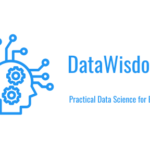#Healthcare in its current form does not benefit patients or providers. Processes, #technology, cost, #insurance etc are old and not integrated. #AI is one way to improve the whole process. While the rules, regulations, disconnected health systems and outdated technology makes it tough to get correct real time information, that should serve as an opportunity to solve real beneficial problems. Healthcare industry has always been slow and conservative to change for good reason, risk to patient. That is a good principle, but still can’t be used as an excuse for not using technology to improve patient experience, reduce cost, provider burnout, administrative overhead, etc. The more data and analysis that is available to providers and payers, the better the outcome and cost for the patient. Dr’s can still provide same care but with more useful analysis trained on millions of cases and variations. No single Dr or provider has that kind of experience or expertise.
The entire patient lifecycle from illness to treatment has many interactions with different providers and payers. All the information is in closed systems. But if that can be extracted into one unified view of the patient then it can provide great benefits to patients, payers and providers. All that data can be very useful in training more accurate AI models to give everyone quality information and analytics in real time when taking health decisions. Patients can ask more relevant questions to dr’s, dr’s or nurses can take better more informed decisions with limited to no admin overhead. That data can be used by hospital, pharma, insurance and other companies to build better risk systems for future planning in services & medicines demand & supply.
It will improve patient health providing them with more control and choice over provider and treatment, reduce cost long term by removing unnecessary admin, address the oncoming shortage in healthcare providers by using AI to increase their patient time, provide more access in areas lacking in healthcare infrastructure, reduce insurance cost with better risk models. Imagine a system where patients can access dr’s from any phone or app, get dr diagnosis in realtime using voice transcription summary of notes and recommendations using all patient health history and risk assessment analysis, direct connection to pharmacy for online delivery, labs scheduling, with all data & results shared with everyone (patient, provider, payer). Restricted access to different information can be provided securely. This is the biggest challenge, how to get all the disparate data in one place for analysis and viewing by all, given most providers and payers don’t want to share their data. We need to incentivize this, probably starting with smaller clinic’s or dr practices.
Once all patient data is available to analyze, better future health risk assessment can be made by AI, which can be used by Dr and providers/payers to make decisions. We should guard for any bias when building the models and provide transparency on how model’s measure risk as that will improve acceptance by all concerned. We can turn HIPAA into a rules engine, analyzed using LLM models and assess different risk measures against that to ensure privacy, security and any bias. All this Can be built. Lot of the technology already exists and is getting cheaper and better with AI models, video streaming, personal health monitors, apps, mobile speeds, etc. No need to go to clinic or hospital all the time, just for emergencies or exception cases.
Despite the recent healthtech or digital health startup shut downs, I think we are at the beginning of a disruptive cycle in healthcare. Healthcare providers are getting more comfortable using technology and are themselves asking for various solutions to help them manage their time, cost and increase revenue. Global healthcare industry size is ~$10tn and increasing as populations age and new diseases increase. US spends $4.5tn ~20% of GDP on healthcare, ~30% of that is wasted $1.5tn, just efficiency improvements will result in benefits to everyone’s costs, especially patients as all cost is paid by tax payers via increased insurance cost and worse outcomes. Healthcare systems are better or worse in other countries, depending on historic investments and access to technology.
One example of an inefficient and outdated business model is the way #US #pharmacy chains operate, just doesn’t make sense. Difficult to get correct prescription, wrong information, stressed pharmacist doing everything, high cost. Large stores, generally empty, selling grocery. Some medicines (branded or generic) are way cheaper without insurance and easier to get online, seems like wrong incentives. Their focus should be on selling #medicines in a small store with a large automated supply chain with easy online delivery. The store should be for exception cases, rest everything can be done online or on phone. Why should anyone have to go to the store, wait in line only to be told that their prescription was not received or the medicine is not in stock or insurance information is wrong. All this can be done online much more easily without human error, just requires integrated systems between pharmacy dr office and insurance. It will also reduce physical store cost, provide more choice in prescription medication and overall insurance cost.
One good talk is #Hinton agreeing on benefits of #AI on #healthcare, shows how much can be done to improve healthcare. Hinton being the foremost scientist in AI has expressed serious concerns about risks of AI. If he thinks AI can be used in healthcare, then it’s worth considering.
Another very interesting article is by famous VC #VinodKhosla on #AI in #healthcare. He has very interesting ideas on the future of various industries and technologies.
All these things are easy to say, hard to do, but solvable given all available technology. The tools available to build apps now require limited tech time and investment. What you need is a small founding team with tech/data science and product/marketing background and domain knowledge from Dr, nurse, admin/tech, insurance and pharmacy. 3-6 months to get a market validated product seems reasonable, with bootstrapped funding to build models, product, iterative testing with willing clinic/hospital/insurance/payer. Overall, healthcare seems like the industry most ripe for disruption in various ways and best impactful outcomes if achieved.















